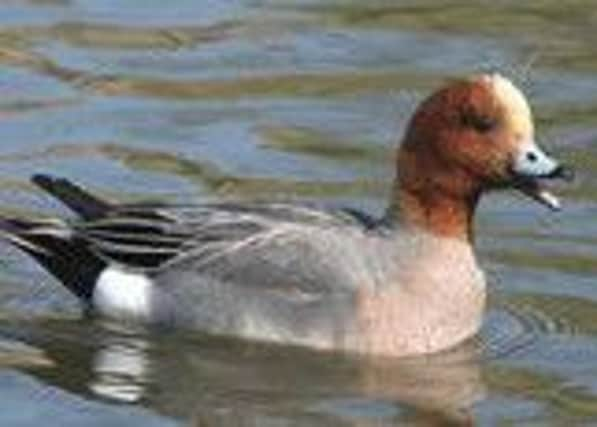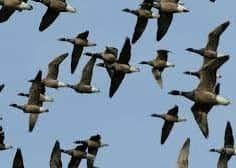DAERA Management Notes: Poultry


This is a very aggressive strain and causes high mortality very quickly. The virus moved across mainland Europe making its way down to France on the 26 November 2016 where infection was confirmed in a commercial duck flock. Due to its proximity DEFRA put a housing order in place on the 6th December 2016.
On the 16 December 2016 an outbreak was confirmed on a turkey farm in Lincolnshire. Following the outbreak protection and surveillance zones were put in place. Since then there have been a number of wild bird findings in England and a back yard flock (chickens and ducks) confirmed positive on the 31 December in Wales. On the 23 December 2016, as a precaution, a housing order was put in place in Northern Ireland (NI) for all poultry. Unfortunately on the 30 December 2016 a wigeon (wild duck) was found with the virus in Wexford, with a second finding in Galway and a further back yard flock (chickens and ducks) confirmed positive on the 6 January 2017 in Yorkshire. As I write this note there has been another outbreak in turkeys in Lincolnshire close to the previous outbreak in December. It is clear that AI is now throughout Europe with the exception of NI. Vigilance and the strictest biosecurity by both commercial farmers and back yard flock keepers is the only way to try and reduce the likelihood of an outbreak in a commercial flock in NI.
Biosecurity throughout the AI threat
Advertisement
Advertisement


Reassess hygiene and biosecurity and put extra measures in place to protect the health status of your commercial or back yard poultry flock.
Only allow essential visitors access to the farm and ensure you find out where they have been previously. Minimise foot traffic between houses. Keeping house specific boots and overalls in each control room is good practice. The visitor’s book must be filled in by every person before they enter the site not after the visit has taken place.
Replenish foot dips twice weekly; foot dips that are outdoors and don’t have a lid may require more frequent changing. Ensure the correct concentration of disinfectants is used.
Check all vehicles are clean before entering the site and that all wheels and arches are sprayed thoroughly. Unless access is necessary it is good practice to get vehicles to park outside the site. If you have a breeding or commercial laying farm make sure egg trolleys and trays are clean before allowing them into the egg store.
Advertisement
Advertisement


Keep all outside areas maintained, cutting tall grass and weeds that make ideal coverage for rodents which are a major disease carrier as well as wild birds. Maintain a robust rodent control programme as per your processor/packer company guidelines. Remove any dead birds from the house immediately and put them in enclosed bins before collection or incineration.
When entering or leaving a poultry house wash hands. When leaving the farm change clothes and shower as the virus can be spread from person to person through fomites, that is, clothes, shoes, hair and hands. Although the virus will not affect humans you could spread it to your own or other flocks.
If you require any advice please contact your local vet or DAERA office and if you are concerned about the health of your flock seek immediate veterinary advice.